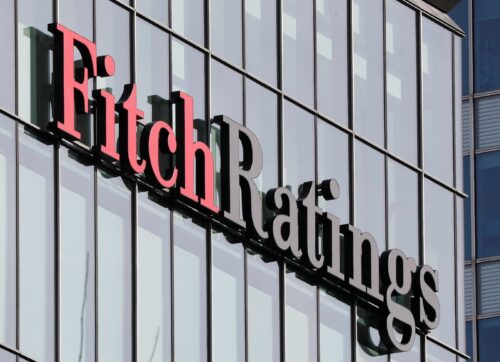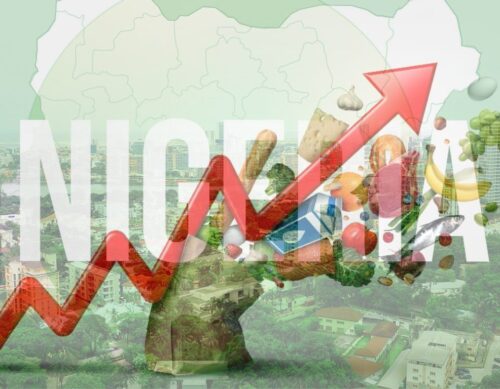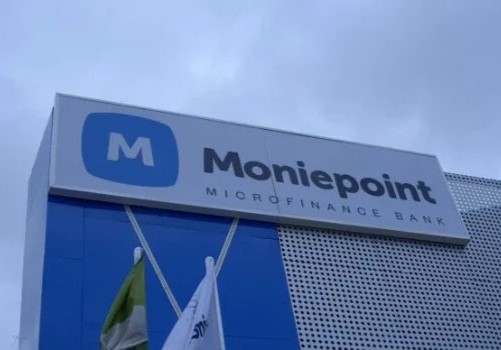In case you missed some of the key happenings this week, here’s a quick rundown of the major news that caught our attention.
1. Nigeria’s Economy Sees a Brighter Outlook

Good economic news! Nigeria’s credit rating improved to ‘B’ with a stable outlook. This is thanks to big government economic reforms. Fuel subsidy removal and a market-driven exchange rate are key. These changes help stabilize the economy. Investor confidence is up. Macroeconomic vulnerabilities are reduced.
Fitch Ratings noted promising reform momentum. They see improvement in FX market operations. Inflation is also being addressed. However, Fitch expects inflation to remain higher than peers. They anticipate sustained progress in FX reforms. External account stability should improve. This will be supported by more foreign currency and energy sector reform.
Key Points from Fitch’s Analysis:
- FX Reforms Drive Record Inflows: Governor Cardoso’s Central Bank implemented FX market reforms. An electronic platform and tighter policy were introduced. Net official FX inflows hit a record $27 billion in Q4 2024!
- Inflation To Ease Slightly But Stay High: After CPI rebasing, inflation fell from 34.8% (Dec ’24) to 23.2% (Feb ’25). Still, Fitch expects 22% average in 2025 and 20% in 2026. The CBN has raised the Monetary Policy Rate significantly.
- Oil Output To Rise, Refining Capacity Grows: Fitch forecasts a slight increase in Nigeria’s crude oil production. Dangote Refinery output should rise by mid-2025. Operating near capacity, it meets daily fuel needs. Oil import costs will reduce. However, the refinery still needs international crude.
- Budget Deficit May Widen Despite Revenue Growth: Despite projected higher government revenue, Fitch expects a wider budget deficit. This will be due to increased wages and social spending. Security and election costs, plus debt servicing, also contribute.
- Public Debt Growth Slows, But Pressures Remain: Fitch estimates a slight drop in Nigeria’s debt-to-GDP ratio soon. This is due to strong economic growth. However, public debt rose significantly in 2024. External debt servicing costs are also expected to increase. A recent minor Eurobond payment delay highlights financial challenges.
2. Equinix Plans to Enhance Southern Nigeria’s Internet

Big tech news! Equinix will invest $140 million to boost digital infrastructure in southern Nigeria over two years. This includes a new data center in Port Harcourt. They will also expand their Lagos facility. This aims to spread internet infrastructure beyond Lagos.
This follows Equinix’s 2022 acquisition of MainOne. This investment reinforces their commitment to Nigeria’s digital economy. It also addresses regional internet access disparities.
A key part is Equinix PR1 in Port Harcourt. It will be Nigeria’s first landing station for Meta’s 2Africa cable. This will dramatically boost bandwidth in the region. It will also ease reliance on Lagos for international connections.
The 2Africa cable is a world-leading high-capacity system. PR1’s arrival is a major shift for southern Nigeria. The region has a large population and economic importance. Equinix is also working to increase West Africa’s connectivity resilience. They are using an “active/active” model across multiple cables.
Nigeria’s digital infrastructure has grown since the early 2000s. Equinix’s 2022 entry was a turning point. Despite more international bandwidth, inland connectivity is limited. Equinix is a key private sector partner in addressing this. Their Port Harcourt expansion is a bold step. It aims for more equitable digital resource distribution. This could foster broader economic inclusion.
3. Vynt: The Future of Stylish Thrift Shopping in Nigeria

Cool fashion news! Aso-ebi often gets forgotten after Nigerian celebrations. Vynt is a new social commerce marketplace. It makes fashion resale seamless and sustainable. They call thrifting “vynting.”
Launched in March 2025, their app has nearly 2,000 users. It’s a community to shop, sell, and connect. Founder Tolu Okoya-Thomas saw a gap for a digital resale community.
Fashion is a major global polluter. Nigeria has secondhand markets. Vynt provides a trusted digital platform. They verify item quality and handle logistics. Sellers are currently focused in Lagos. Buyers nationwide can participate. Vynt also helps individuals resell thrifted items. They partner with brands for unsold stock. Vynt also educates users about sustainable fashion. They aim to redefine resale in Nigeria and beyond.
4. Inflation in Nigeria Climbs Up Again

Nigeria’s inflation rose to 24.2% in March. This reverses February’s temporary ease. Increased spending during Eid and naira depreciation pushed prices higher.
Food inflation slightly eased to 21.79%. Core inflation, excluding volatile items, rose to 24.43%. This signals deeper cost pressures. Analysts blame seasonal demand and currency instability. Higher costs in telecom and logistics also played a role.
The naira sharply declined, erasing earlier gains. Businesses passed higher costs to consumers. Analysts expect inflation to remain high short-term. Upcoming electricity tariff adjustments pose risks. Global supply chain issues are also a factor. The Central Bank may consider further measures. They might hike rates or tighten liquidity.
5. Nigeria Launches Its First Electric Ride-Hailing Cars

Exciting green news! Nigeria launched its first EV ride-hailing platform, eDryv. Foltï Technologies, a Lagos company, developed it. Impressively, 95% of the energy is solar-powered. This is a big step for cleaner transport.
The service launched at Foltï’s solar-powered HQ in Lagos. eDryv offers ride-hailing and vehicle rentals. Corporate transport is also included. All are powered by renewable energy. Initially serving Lagos Island, fares are competitive. A “Green Coins” program rewards zero-emission travel.
Founder Ahmad Damcida stressed their green commitment. He noted EVs are durable and easier to maintain. Instead of selling EVs, eDryv offers a subscription model. The company built a solar charging hub. More are planned across Lagos. Attendees were optimistic. The Electric Mobility Promoters Association lauded this. Foltï plans a local EV assembly plant.
6. Moniepoint Aims to Revolutionize Cross-Border Transfers

Fintech news! Moniepoint launched Monieworld. It’s for seamless UK to Nigeria money transfers. Users can send to any Nigerian bank account. Various transfer methods are supported. Monieworld aims for faster, cheaper remittances.
A live demo showed a quick transfer with a good exchange rate. Initially focused on the UK-Nigeria corridor, CEO Tosin Eniolorunda sees it as a foundation for a global African financial ecosystem. Revenue will come from FX fees. Moniepoint will leverage their Nigerian market success. They aim to attract users with good pricing and experience.
Operating under a Nigerian license, they are also seeking a UK license. Currently for UK residents with verification, Moniepoint sees a big opportunity. Many Nigerians in the UK still use informal methods. They plan to expand to other remittance corridors later.
7. Banks Benefit Greatly As Digital Payments Take The Stage

Big banking news! Ten leading Nigerian banks saw a 58% jump in e-payment revenue in 2024. This reflects growing digital banking adoption. Combined earnings reached ₦674 billion. Increased transfer volumes and mobile app use drove this. Higher card transaction activity also helped.
This highlights the rising importance of non-interest income for banks. UBA and Access Bank led in e-payment revenue. This revenue growth links to a surge in digital payment volumes via NIBSS. Regulatory changes on transfer fees also contributed.
Analysts say banks are investing in digital banking strategically. This is due to high inflation and shrinking profit margins. Digital revenue growth justifies IT infrastructure investment. Broader payment trends show growth in NIP and PoS transactions. Naira depreciation also increased transaction values. Nigeria has seen a significant drop in cash transactions. This underscores the shift to digital payments.
So, there you have it – a quick look at some of the top stories from the week. Lots happening in the economy and the tech space, with some interesting developments in sustainable living and digital finance. Stay tuned for more updates!

